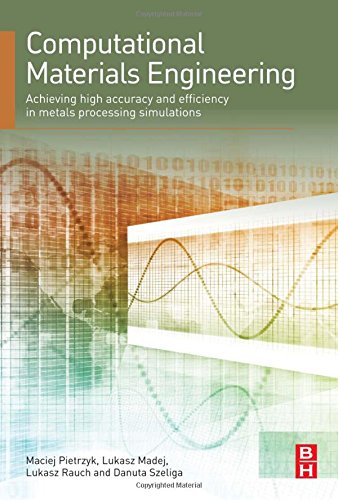

Most ebook files are in PDF format, so you can easily read them using various software such as Foxit Reader or directly on the Google Chrome browser.
Some ebook files are released by publishers in other formats such as .awz, .mobi, .epub, .fb2, etc. You may need to install specific software to read these formats on mobile/PC, such as Calibre.
Please read the tutorial at this link: https://ebookbell.com/faq
We offer FREE conversion to the popular formats you request; however, this may take some time. Therefore, right after payment, please email us, and we will try to provide the service as quickly as possible.
For some exceptional file formats or broken links (if any), please refrain from opening any disputes. Instead, email us first, and we will try to assist within a maximum of 6 hours.
EbookBell Team

4.7
106 reviewsComputational Materials Engineering: Achieving High Accuracy and Efficiency in Metals Processing Simulations describes the most common computer modeling and simulation techniques used in metals processing, from so-called "fast" models to more advanced multiscale models, also evaluating possible methods for improving computational accuracy and efficiency.
Beginning with a discussion of conventional fast models like internal variable models for flow stress and microstructure evolution, the book moves on to advanced multiscale models, such as the CAFÉ method, which give insights into the phenomena occurring in materials in lower dimensional scales.
The book then delves into the various methods that have been developed to deal with problems, including long computing times, lack of proof of the uniqueness of the solution, difficulties with convergence of numerical procedures, local minima in the objective function, and ill-posed problems. It then concludes with suggestions on how to improve accuracy and efficiency in computational materials modeling, and a best practices guide for selecting the best model for a particular application.